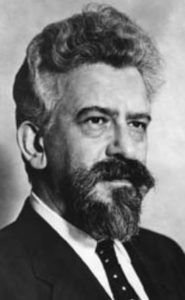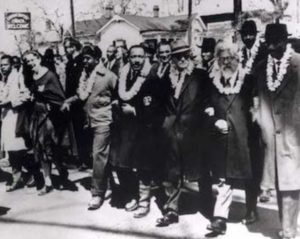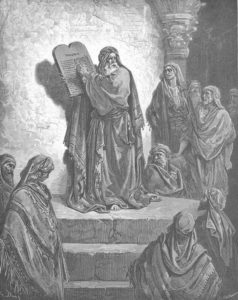Israel’s Indiana Jones
 Eilat Mazar (1956-2021) was born in Israel to a family of archaeologists, and grew up playing and learning on excavation sites. Her grandfather, Benjamin Mazar, was the State of Israel’s first official archaeologist, and was the president of the Hebrew University. Eilat studied archaeology at the same university, and began her field work in 1981. She made a big splash right away by discovering the Royal Quarter of the ancient City of David in Jerusalem, including what is thought to be the royal palace of King David himself. She went on to uncover some of the biggest finds of the last century, including parts of the walls built by King Solomon, the seal of King Hezekiah, and the seal of the Prophet Isaiah. Mazar was driven by her belief that the Tanakh records actual historical events (whereas many of her secular colleagues often viewed the Tanakh as mythology). She would say that “I work with the Bible in one hand and the tools of excavation in the other.” Over the decades, her work played a major role in helping to prove the authenticity of the Bible. Mazar discovered countless treasures from the First and Second Temples in Jerusalem, and was a vocal activist trying to stop Palestinian and Jordanian authorities from destroying Jewish artifacts on the Temple Mount. (The worst case of this was in November 2000, when some 6000 tons of precious earth from the Temple Mount was illegally excavated by the Waqf and dumped in a landfill.) In 2013, Mazar discovered a large cache of treasure from the 7th century that contained a gold coin depicting a menorah, shofar, and Torah. She taught at the Hebrew University and published three books on archaeology, along with dozens of journal articles. She also paved the way for more female archaeologists to enter the field. Despite suffering from an illness, Mazar continued working and digging. Sadly, she passed away earlier this week. Israel Prize winner David Be’eri said that she “will forever be remembered as a pioneer standing shoulder to shoulder with the greatest scholars of Jerusalem throughout the ages.”
Eilat Mazar (1956-2021) was born in Israel to a family of archaeologists, and grew up playing and learning on excavation sites. Her grandfather, Benjamin Mazar, was the State of Israel’s first official archaeologist, and was the president of the Hebrew University. Eilat studied archaeology at the same university, and began her field work in 1981. She made a big splash right away by discovering the Royal Quarter of the ancient City of David in Jerusalem, including what is thought to be the royal palace of King David himself. She went on to uncover some of the biggest finds of the last century, including parts of the walls built by King Solomon, the seal of King Hezekiah, and the seal of the Prophet Isaiah. Mazar was driven by her belief that the Tanakh records actual historical events (whereas many of her secular colleagues often viewed the Tanakh as mythology). She would say that “I work with the Bible in one hand and the tools of excavation in the other.” Over the decades, her work played a major role in helping to prove the authenticity of the Bible. Mazar discovered countless treasures from the First and Second Temples in Jerusalem, and was a vocal activist trying to stop Palestinian and Jordanian authorities from destroying Jewish artifacts on the Temple Mount. (The worst case of this was in November 2000, when some 6000 tons of precious earth from the Temple Mount was illegally excavated by the Waqf and dumped in a landfill.) In 2013, Mazar discovered a large cache of treasure from the 7th century that contained a gold coin depicting a menorah, shofar, and Torah. She taught at the Hebrew University and published three books on archaeology, along with dozens of journal articles. She also paved the way for more female archaeologists to enter the field. Despite suffering from an illness, Mazar continued working and digging. Sadly, she passed away earlier this week. Israel Prize winner David Be’eri said that she “will forever be remembered as a pioneer standing shoulder to shoulder with the greatest scholars of Jerusalem throughout the ages.”
Archaeological Proof for the Torah and Exodus
Words of the Week
I fully understand that any minority would prefer to be a majority, it is quite understandable that the Arabs of Palestine would also prefer Palestine to be the Arab State No. 4, No. 5, No. 6 – that I quite understand; but when the Arab claim is confronted with our Jewish demand to be saved, it is like the claims of appetite versus the claims of starvation.
– Ze’ev Jabotinsky

Some of Eilat Mazar’s biggest finds (clockwise from top left): gold medallion with menorah, shofar, and Torah scroll from the 7th century CE; seal of King Hezekiah, 7th century BCE; King Solomon’s walls, 10th century BCE; seal of the Prophet Isaiah, 7th century BCE.



